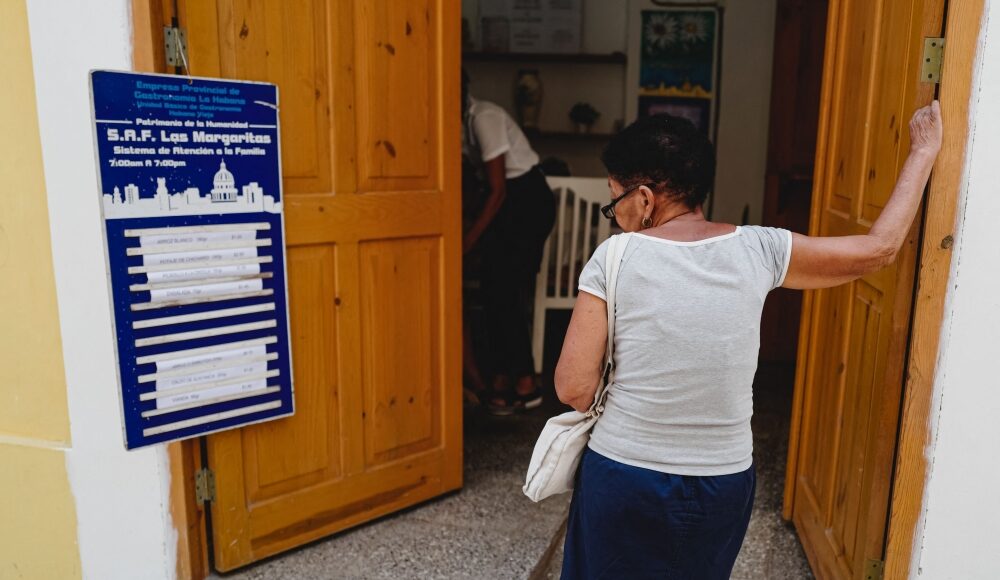JULY 8 — “What if your elderly mother fell in her bedroom, or the bathroom, and no one found out until hours later?”
Yes, it’s a painful scenario, but one that happens far too often in Malaysia. Whether in care homes or living alone, many older adults face real safety risks due to limited monitoring and delayed response. While our culture emphasises filial piety and respect for elders, the reality is that as more Malaysians live and work in cities, many ageing parents are left behind or placed in increasingly crowded care facilities.
According to the Department of Statistics Malaysia, the country is expected to become an aged nation by 2044, with 14 per cent of the population aged 65 and above. That might seem distant, but the effects are already here. The number of elderly citizens is growing steadily, and with that comes a rising demand for healthcare, personal assistance, and institutional care. More and more families are struggling to balance work responsibilities with caring for ageing parents or grandparents, while hospitals and care homes are becoming overstretched.
Yet within this demographic challenge lies an opportunity: one that calls for empathy, innovation, and collaboration. As a biomedical engineering student, I believe we must approach this issue not just as a healthcare concern, but as a matter of dignity and human rights. This is where technology, specifically sensor-based solutions, can quietly and respectfully make a difference.
In the Problem-Based Learning (PBL) project of our elective course, my team and I proposed a sensor-based system designed specifically for elderly care homes. Our goal was to detect critical events such as falls or irregular activity patterns, and to alert caregivers instantly. We wanted to offer a way to reduce silent suffering and give caregivers a tool to act faster and more efficiently, without invading the elderly’s privacy or sense of autonomy.
Many older Asian adults fear becoming a burden. They value their independence and routine. By integrating sensors subtly into everyday environments, we can help them maintain those values while still offering families and care workers peace of mind. A fall detected within seconds can make the difference between recovery and long-term injury. Irregular movement patterns could indicate early signs of cognitive decline. These small insights could save lives.
The sensors we proposed are non-invasive, meaning they do not require the person to wear a specialised device or be constantly under video surveillance. Instead, they track motion, heart rate, or pressure to help identify risky situations like someone getting out of bed at night and not returning, or a sudden loss of movement that might indicate a fall. These infrared- or Bluetooth-based systems can be embedded subtly into furniture or walls, making them invisible companions in daily life.
More than just technical skills, this PBL project deepened my understanding of what it means to grow old in Malaysia. Many of us assume that elders will always have someone there to look after them. But not everyone has that support — and even those who do may still face risks when left alone. The question we asked ourselves throughout this project was: How can we help elderly Malaysians live safely, without losing their sense of independence?
This experience reshaped how I view my role as a biomedical engineer. It is not just about circuits, codes, or clinical tools. It is about empathy-driven innovation. It is about creating technology that responds to real needs, especially among vulnerable populations like the elderly. As I look ahead to my future career, I now see biomedical engineering not only as a technical field, but as a social one. One where engineers must walk hand-in-hand with caregivers, healthcare workers, and families to build solutions that work for people — not just in theory, but in everyday life.
An older adult woman reads the menu at a community food center, part of the Family Attention System (SAF), in Havana, on May 26, 2025. — AFP
We often talk about “smart cities” and “digital futures,” but if we forget our elderly in these conversations, then we have missed the point entirely. Growing old is a natural part of life. But the experience of ageing should not be defined by fear, neglect, or silence. It should be marked by safety, respect, and dignity.
So, here is my hope: that as Malaysia steps forward into its ageing future, we also step up — students, engineers, policymakers, and citizens — to ensure that no one is left behind. We must invest in elder-friendly technologies, support care infrastructure, and most importantly, talk openly about what it means to age with grace.
After all, we are not just building tools for someone else’s parents or grandparents. One day, it will be us.
* Ng Yi Xuan is a final year biomedical engineering student at Faculty of Engineering, Universiti Malaya. She can be contacted at [email protected]
** This is the personal opinion of the writer or publication and does not necessarily represent the views of Malay Mail.





